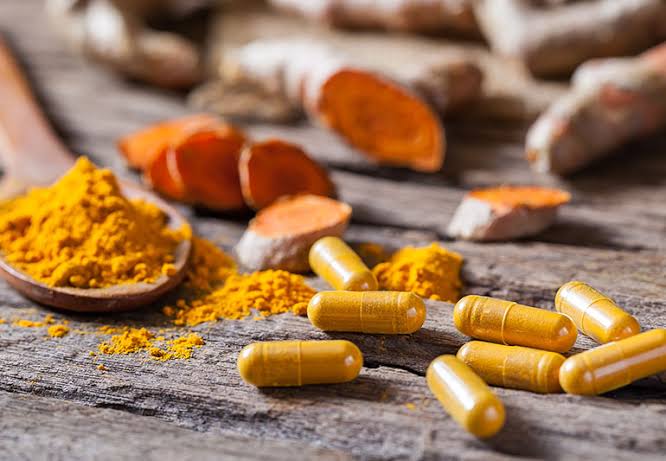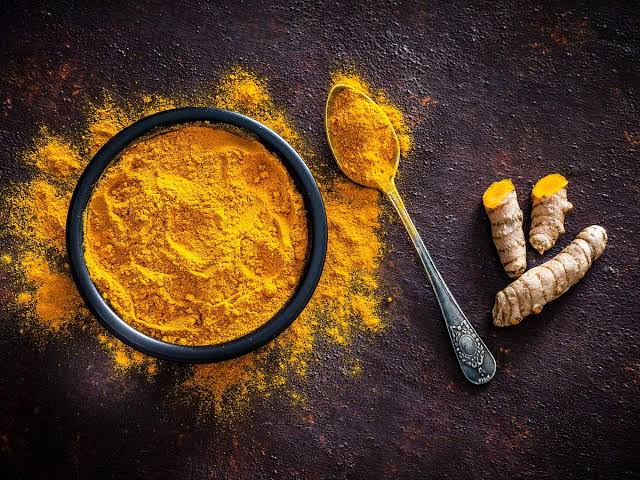Turmeric is a spice that is bright, fragrant, and bitter. Traditionally, it has been utilised in Indian and Chinese traditional medicine for a variety of uses ranging from cancer treatment to mosquito repellent.
Turmeric has been credited with seemingly miraculous medicinal abilities for about 4,000 years, according to legend. It is also known as Golden Goddess and Indian Saffron, and it is a bright yellow powder that is extracted from the root of the turmeric plant. Curcumin is also frequently used as a food colourant and dye, among other things.
In this article, we examine if turmeric can be good for skin health, namely for psoriasis and acne, as well as for other conditions.
Important facts about turmeric and skin care:
- Although the turmeric plant can be found growing in a variety of tropical climates, the majority of it is farmed and consumed in India.
- Turmeric’s active curcumin component, which is responsible for the colour of the spice, may offer therapeutic benefits for the skin.
- A member of the ginger family, the turmeric plant can grow up to one metre in height and has yellow trumpet-shaped blooms.
Health benefits

Turmeric’s vivid yellow colour is derived from curcumin, which is one of its active ingredients.
Curcumin appears to provide skin-protective properties against skin-damaging chemicals and environmental contaminants, according to some research.
Curcumin protects the skin by fighting free radicals and lowering inflammation, among other things. Additionally, there is evidence to suggest that curcumin may be beneficial for the following skin conditions:
Skin cancer
Curcumin may be beneficial in the treatment of melanoma. Curcumin is believed to be capable of cleaning up defective cellular components. It may also have an inhibitory effect on the proliferation of melanoma cells and the course of the tumour.
Psoriasis
Skin and joint disease Psoriasis is an inflammatory skin and joint condition that has been linked to an elevated risk of heart disease.
Curcumin is hypothesised to work by interfering with the immunological processes that cause psoriasis.
Scleroderma
Scleroderma is a condition in which the immune system attacks connective tissue that is generally healthy, resulting in scarring. Scarring around internal organs and blood arteries, as well as beneath the skin, is common with this condition.
Curcumin’s beneficial effects on scar formation are suggested to be beneficial in the management of the symptoms of scleroderma.
Vitiligo
It is a condition that causes depigmentation of the skin, resulting in the appearance of white areas of skin. Curcumin has the potential to reduce oxidative stress in epidermal skin cells, which are responsible for the production of melanin in some situations.
Acne
Acne is a common skin disorder characterised by blackheads, whiteheads, and pustules on the face and body, among other things. When used topically, a skin cream containing curcumin has the ability to regulate skin sebum production, which may be beneficial for those suffering from acne.
How to use turmeric for the skin

When curcumin from turmeric is used orally, it is poorly absorbed. It metabolises fast and is excreted from the body within minutes of ingestion.
Because to the presence of bromelain, an enzyme present in pineapple, the absorption and anti-inflammatory benefits of curcumin are enhanced. As a result, it is frequently used in conjunction with turmeric-based therapeutic preparations.
Turmeric preparations can be used directly to wounds, rashes, bruises, and bug bites that are still healing. Turmeric for medicinal purposes is available in a variety of forms, including:
- capsules and tablets
- ointments
- fluid extract
- tincture
- oil
Curcumin is also found in the following products:
- energy drinks
- soaps
- cosmetics
Risk factors
Curcumin, the active component of turmeric, has been determined to be generally safe for use and ingestion by the Food and Drug Administration (FDA) of the United States of America. Natural therapies, on the other hand, might create unpleasant side effects, such as allergies, and can interact in unexpected ways with other herbs, vitamins, or pharmaceuticals.
The FDA has not confirmed the claim that all curcumin-containing products contain 95 percent curcuminoids, which has been made by several companies. Because the Food and Drug Administration (FDA) does not monitor turmeric or curcumin supplements, consumers should exercise caution when purchasing a reputed brand.
It is not recommended to combine medicinal turmeric or curcumin with medications for any of the following diseases without first consulting a doctor:
Diabetes
When taken with curcumin-based therapies, this sort of drug may become more potent, which may increase the risk of developing low blood sugar symptoms (hypoglycemia).
Blood thinners
The anti-inflammatory compound curcumin has blood-thinning characteristics, and it should not be taken with other blood thinners, such as aspirin. It is possible that this will raise the risk of bleeding.
Because curcumin contains blood-thinning qualities, it should not be taken for at least 2 weeks before surgical procedures.
Stomach acid
Turmeric has the potential to interfere with the efficacy of medications that reduce stomach acid while simultaneously increasing the production of stomach acid.
When consumed on an empty stomach, curcumin-containing pills, which are widely accessible in the United States without a prescription, have been linked to gastritis and peptic ulcers.
Conclusion
Some civilizations have elevated turmeric to the level of mythological status as a result of its extraordinary effectiveness in treating a wide variety of diseases. According to conventional wisdom, turmeric possesses anti-inflammatory, antimicrobial and antioxidant qualities, as well as antiviral, antibacterial, and antifungal capabilities, as well as anticancer properties.
However, despite the fact that it has been used in Indian and Chinese medicine for thousands of years, its biological features were only discovered in the mid-20th century. Since then, turmeric’s therapeutic properties have been the focus of numerous scientific investigations and clinical trials.
While some early results appear to support at least some of the healing properties long attributed to curcumin, a recent study into its medicinal chemistry concluded that curcumin does not appear to possess the properties necessary to be a viable drug candidate. Curcumin is a compound found in turmeric.
A doctor should be consulted before taking any supplements or herbs, as this will help to avoid unwanted interactions with drugs or illness management.







